Centers for Medicare & Medicaid Services
Comprehensive Care for Joint Replacement Model
Notification Letter
Kansas Surgery & Recovery Center is participating in a New Care Improvement Initiative from Medicare
Kansas Surgery & Recovery Center is participating in a Medicare initiative called the Comprehensive Care for Joint Replacement (CJR) model. The CJR model aims to promote quality and financial accountability for care surrounding lower-extremity joint replacement (LEJR) procedures, commonly referred to as hip and knee replacements and/or other major leg procedures. Kansas Surgery & Recovery’s participation in the CJR model should not restrict your access to care for your medical condition or your freedom to choose your health care providers and services. All existing Medicare beneficiary protections continue to be available to you. These include the ability to report concerns of substandard care to Quality Improvement Organizations and 1-800-MEDICARE.
The CJR model aims to help give you better care.
The CJR model aims to support better and more efficient care for beneficiaries undergoing LEJR procedures. A CJR episode of care is typically defined as an admission of an eligible Medicare beneficiary to a hospital participating in the CJR model that eventually results in a discharge paid under Medicare Severity-Diagnosis Related Groups (MS-DRG) 469 (major joint replacement or reattachment of lower extremity with major complications or comorbidities) or 470 (major joint replacement or reattachment of lower extremity without major complications or comorbidities). The CJR episode of care continues for 90 days following discharge. This model tests bundled payment and quality measurement for an episode of care associated with LEJR procedures to encourage hospitals, physicians, and post-acute care providers to work together to improve the quality and coordination of care from the initial hospitalization through recovery. Through this bundled payment model, Kansas Surgery and Recovery Center will receive additional payments if quality and spending performance are strong or, if not, potentially have to repay Medicare for a portion of the spending for care surrounding a lower extremity joint replacement procedure.
Medicare is using the CJR model to encourage Kansas Surgery & Recovery Center to work more closely with your doctors and other health care providers that help patients recover after discharge from the hospital, including nursing homes (skilled nursing facilities), home health agencies, inpatient rehabilitation facilities, and long-term care hospitals. The goal of the model is to encourage these providers and suppliers to provide you with better, more coordinated care during and following your hospital stay. The model is expected to lower the cost of care to Medicare but your costs for covered care will not increase due to these changes.
Kansas Surgery & Recovery Center is working closely with the doctors and other health care providers and suppliers who will care for you during and following your hospital stay and extending through the recovery period. By working together, your health care providers and suppliers are planning more efficient, high quality care as you undergo treatment.
Medicare will monitor your care to ensure you and others are receiving high quality care.
Kansas Surgery & Recovery Center will enter into financial arrangements with collaborating health care providers and suppliers who are engaged in care redesign with the hospital and who may furnish health care services to you during your episode of care. Under these agreements, Kansas Surgery & Recovery Center may share payments received from Medicare as a result of reduced episode spending and hospital internal cost savings with collaborating providers and suppliers. Kansas Surgery & Recovery Center may also share financial accountability for increased episode spending with collaborating providers and suppliers.
The following list includes health care providers and suppliers that have established a collaborator agreement with Kansas Surgery & Recovery Center in order to share in financial rewards and/or losses in the CJR model:
- Anesthesia Consulting Services
- Christopher Anderson, MD
- Samuel Ashby, DO
- Tarun Bhargava, MD
- Robert Cusick, MD
- Bradley Dart, MD
- Paul Enns, MD
- Christopher Halphen, DO
- Thomas Hendricks, MD
- James Joseph, MD
- Mohamed Mahamed, MD
- Paul Pappademos, MD
- Thomas Sanders, MD
- Jeffrey Shepherd, MD
- Benjamin Young, MD
It’s your choice which hospital, doctor, or other providers you use.
You have the right to choose which hospital, doctor, or other post-hospital stay health care provider you use.
- To find a different doctor, visit Medicare’s Physician Compare website: http://www.medicare.gov/physiciancompare or call 1-800-MEDICARE (1-800-633-4227). TTY users should call 1-877-486-2048.
- To find a different hospital visit https://www.medicare.gov/hospitalcompare/search.html or call 1-800-MEDICARE (1-800-633-4227). TTY users should call 1-877-486-2048.
- To find a different skilled nursing facility, visit Medicare’s Nursing Home Compare website: https://www.medicare.gov/nursinghomecompare/search.html or call 1-800-MEDICARE (1-800-633-4227). TTY users should call 1-877-486-2048.
- To find a different home health agency, visit Medicare’s Home Health Agency Compare website, https://www.medicare.gov/homehealthcompare/search.html, or call 1-800-MEDICARE (1-800-633-4227). TTY users should call 1-877-486-2048.
- If you believe that your care is adversely affected or have concerns about substandard care, you may call 1-800-MEDICARE or contact your state’s Quality Improvement Organization by going to: https://qioprogram.org/locate-your-qio.
For an explanation of how patients can access their health care records and beneficiary claims data, please visit https://www.healthit.gov/patients-families/blue-button/about-blue-button.
Get more information
If you have questions or want more information about the Comprehensive Care for Joint Replacement (CJR) model, call Kansas Surgery & Recovery Center at 316-634-0090 or call 1-800-MEDICARE. You can also find additional information at https://innovation.cms.gov/initiatives/cjr.

